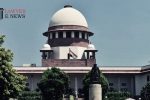Mere Mention in Panchnama Does Not Authorize Income Tax Search Under Section 132: Punjab and Haryana High Court

The Punjab and Haryana High Court has quashed the search proceedings and subsequent assessment orders against Misty Meadows Private Limited, citing significant procedural irregularities. The bench, comprising Justices Sanjeev Prakash Sharma and Sudeepthi Sharma, found that the search conducted was unauthorized and the resulting assessments under Sections 132 and 153A of the Income Tax Act, 1961, were invalid. The judgment highlights the necessity of strict adherence to statutory procedures for tax assessments and search operations.
Invalid Search and Seizure Proceedings: The court focused on the procedural lapses in the initiation of search proceedings against Misty Meadows. It noted, “The mere mention of a company’s name in a panchnama does not equate to authorization for a search under Section 132.” The court emphasized that the statutory conditions for exercising search powers must be strictly followed, and any deviation renders the proceedings void.
Requirement of Authorization: The High Court reiterated the principle that procedural compliance is mandatory. “Where a power is given to do a certain thing in a certain way, it must be done in that way or not at all,” the court quoted, referencing precedents that underline the necessity of proper authorization for search and seizure operations. The court found no evidence of such authorization for the search against Misty Meadows.
Procedural Compliance Under Section 153C: Addressing the failure to follow Section 153C when incriminating materials of third parties are found during a search, the court stated, “The proper procedure should have been to follow Section 153C, which was not done in this case.” The court concluded that the proceedings initiated under Section 153A were unjustified due to the lack of compliance with the mandatory provisions of the Income Tax Act.
The judgment thoroughly discussed the principles of procedural compliance and authorization in tax law. It underscored that the power to search must be exercised strictly according to the law to avoid serious invasions of taxpayer rights. The court referenced several key cases, including Income Tax Officer v. Seth Brothers and Chandra Kishor Jha v. Mahavir Prasad, to support its decision.
Justice Sanjeev Prakash Sharma remarked, “The proceedings initiated under Section 153A of the Income Tax Act are found to be vitiated due to the absence of proper authorization and adherence to the prescribed procedure.” The court also noted, “Mentioning the name in a panchnama without proper authorization cannot be a basis for a valid search.”
Decision: The High Court’s ruling highlights the judiciary’s commitment to ensuring lawful conduct in tax administration. By quashing the assessment orders and notices against Misty Meadows, the judgment reinforces the importance of procedural integrity in search and seizure operations under the Income Tax Act. This decision is expected to impact future cases by setting a precedent for the necessity of strict procedural compliance in tax-related searches.
Date of Decision: 13th May 2024
Misty Meadows Private Limited v. Union of India and others






